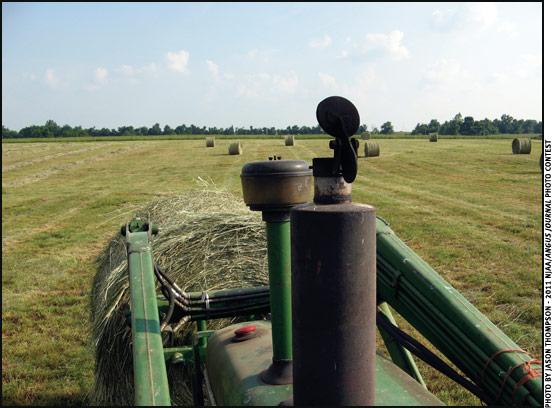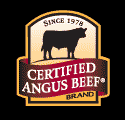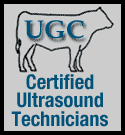
Buy By the Pound and Other Tips
Remember wise hay-buying tips, extension specialist warns.
The dry weather continues to prompt interest in buying hay, notes Eldon Cole, University of Missouri (MU) Extension livestock specialist. When buying hay, Cole recommends buying by weight, not by the bale.
"At least check the weight on a few large bale packages. The 1,000-pound (lb.) big round bale of grass hay may only weigh 750 pounds. That difference in weight would change the per ton price on a $35 bale by about $23 per ton," says Cole.
Cole also recommends taking extra care when transporting and handling plastic-wrapped baleage because holes in the wrap can result in spoiled hay.
"I also recommend testing the hay at a lab to be sure the energy and protein values are suitable for the class of livestock you'll feed. The test costs around $18. The lab can check hay for nitrate problems, which can occur and cause poor performance, even death," Cole says.
It is also a good idea to check the hay for mold problems, weeds and other misrepresentation or mismanagement.
"Don't unload the hay until you're satisfied it's what you agreed to purchase. Horse owners may want to check alfalfa hay for blister beetles," Cole says.
Cole also recommends buying hay that complements the hay you already have.
"Usually this means buying higher-quality hay that contains legumes since your hay supply may be mostly fescue. Besides feed for livestock, purchased hay adds fertility to the fields where you feed it," Cole says.
Cole also recommends asking hay dealers for references and storing and feeding hay in ways that minimize shrink and waste. Barn storage saves a lot of hay and improves palatability. If a barn is not an option, make sure the storage area is well-drained.
The Missouri Department of Agriculture has a hay hotline for buyers and sellers (1-800-877-4429). They release a hay market summary with prices for different types of hay each week.
"Buying hay now would be wise since the extensive dry area in the state will result in stronger hay prices as fall and winter arrive unless there is a drastic turnaround in moisture, which will stimulate fall fescue pasture growth," Cole concluded.











